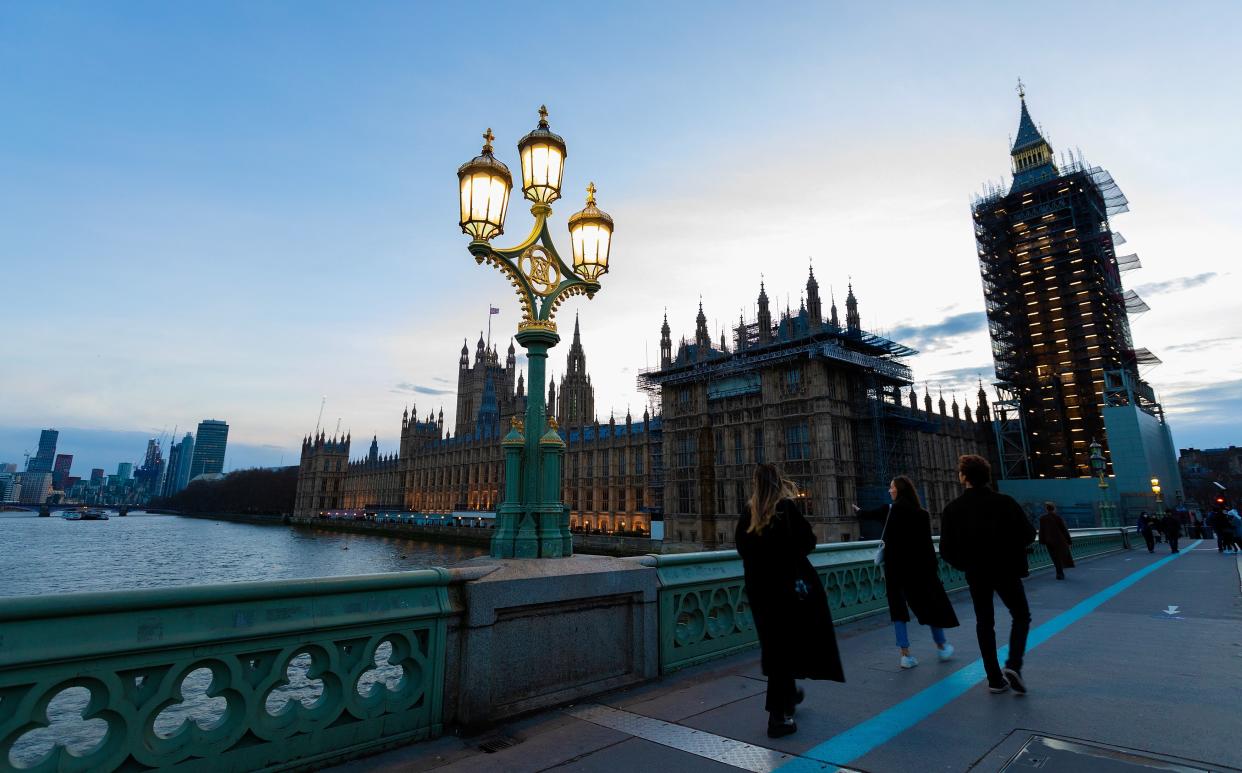When will lockdown end?

Plans for ending the current lockdown restrictions have been unveiled by the prime minister, with a gradual easing of the rules set to take several months.
Schools and meeting up with friends and family are being prioritised over business and travel.
The 68-page roadmap sets out how all school children will be allowed to return to the classroom in a matter of weeks.
Follow Covid news live: Latest lockdown updates
Measures will be eased, step by step, across the whole of England at the same time because the virus is viewed to be fairly uniformly spread across the country.
Boris Johnson has said he wants to tread a “cautious” line with the UK having suffered one of the worst official death tolls anywhere in the world.=
What conditions must be met for lockdown to end?
Four key tests will need to be met as restrictions are gradually relaxed across the country over the coming weeks.
Before each new step the government will look at the Covid-related data to assess what impact the relaxing of measures has had so far.
Several weeks will pass before the next stage in the unlocking to ensure cases of the virus do not spiral out of control.
When will the first restrictions be eased?
Mr Johnson told MPs on Monday that all pupils in all year groups can go back to the classroom from 8 March, with outdoor after-school sports and activities also allowed to restart.
From the same date, people will be permitted to have socially distanced one-to-one meetings with others outdoors in a public space.
This means friends and family members could sit down for a coffee or have a picnic in the park, something not currently allowed under lockdown.
Care home residents will also be allowed a named, single visitor from the 8 March, with visitors required to take a lateral flow test and wear personal protective equipment.
Rule of six and outdoor sports
From 29 March, the “rule of six” will return, along with new measures allowing two households, totalling more than six people, to meet.
Larger groups will also be allowed to gather in parks and private gardens.
At the same time, outdoor sports facilities such as tennis and basketball courts and open air swimming pools are set to reopen.
Organised adult and children’s sport – including grassroots football – can return.
From this point, people will not be legally required to stay at home, and people will be encouraged to stay local instead.
Pubs, bars and restaurants
When non-essential retail and the hospitality sector will be permitted to reopen depends, like all of the future stages of the roadmap, on the data.
From 12 April at the earliest, shops, hairdressers, nail salons, libraries, outdoor attractions and outdoor hospitality venues such as beer gardens will reopen.
Gyms will also be able to open for one household parties from this date, and self contained accommodation will reopen along with funerals for up to 30 people and weddings up to 15.
Rule of six scrapped
On or after 17 May, the rule of six and the two household limit will be scrapped outdoors but implemented indoors, including inside pubs and restaurants.
Gatherings will be allowed for up to 30 people.
Hotels and B&Bs will be permitted to open and some sporting venues will be allowed to welcome spectators (up to 10,000 in biggest venues).
Up to 30 people will be allowed to attend a wedding.
Social contact restrictions eased
From 21 June at the earliest, all remaining restrictions on social contact could be lifted.
Larger events are also likely to go ahead from this date, and nightclubs could finally reopen.
Again, this depends on the four tests set out by the government being met.
Foreign travel
International travel rules are to be reviewed separately, with 17 May listed as the earliest possible date for a foreign holiday.
A further piece of work to conclude by 21 June will examine social distancing requirements – including hugs with friends and relatives – the use of face masks and requirements to work from home.
What do the experts say?
Professor Sir David Spiegelhalter, a member of the Scientific Advisory Group for Emergencies (Sage), said the government will have to leave room for “highly local” interventions.
Fellow Sage member Professor John Edmunds has said rapid easing could lead to a surge in hospital admissions “and indeed deaths”, and placed emphasis on vaccinations.
Additional reporting by PA
Read More
Lockdown lifting: What are the four tests Boris Johnson is using?
Covid hospital admissions down 74% from peak of second wave, NHS figures show

